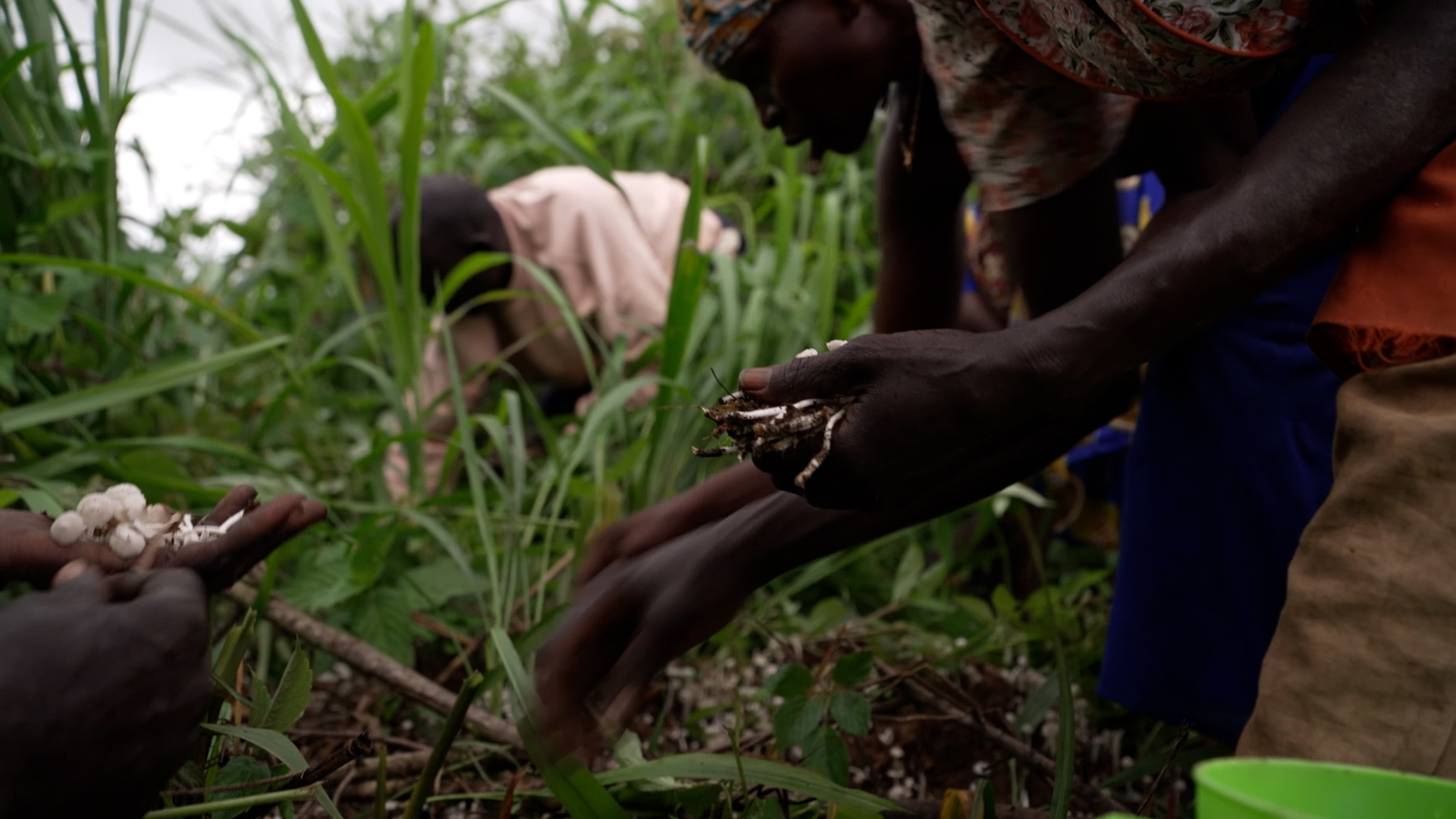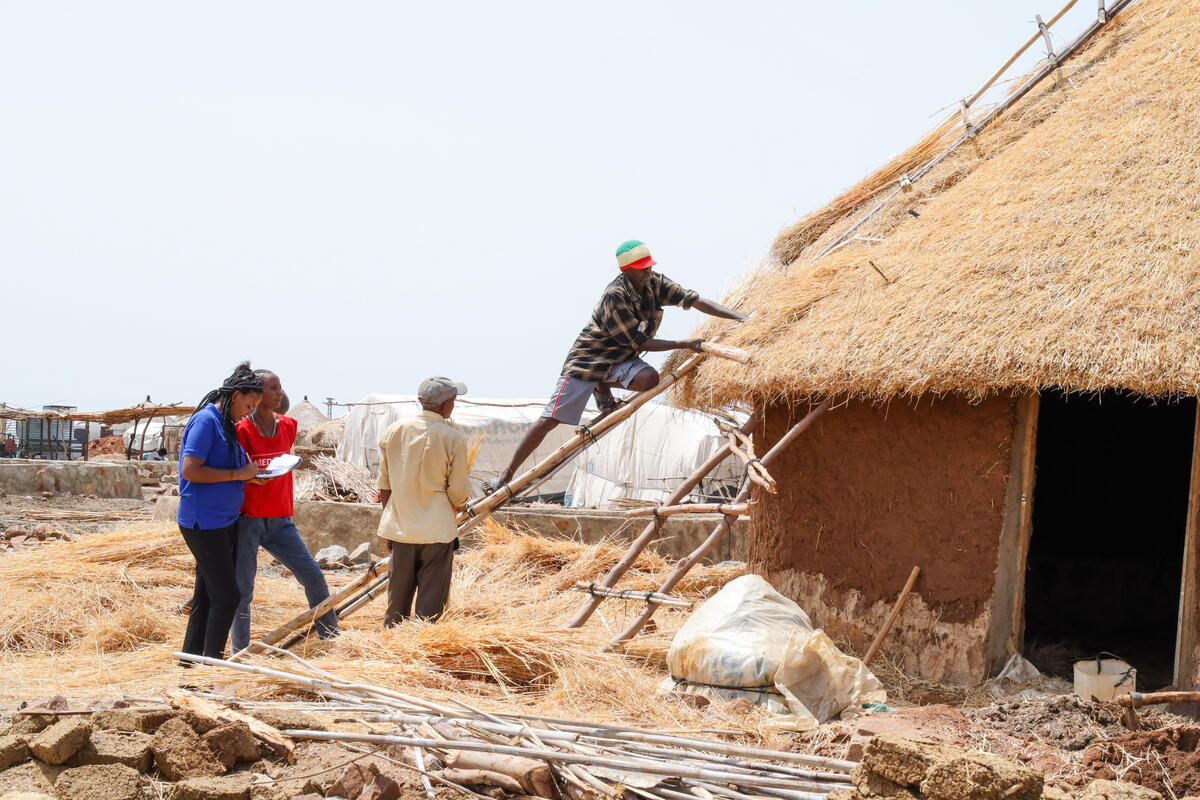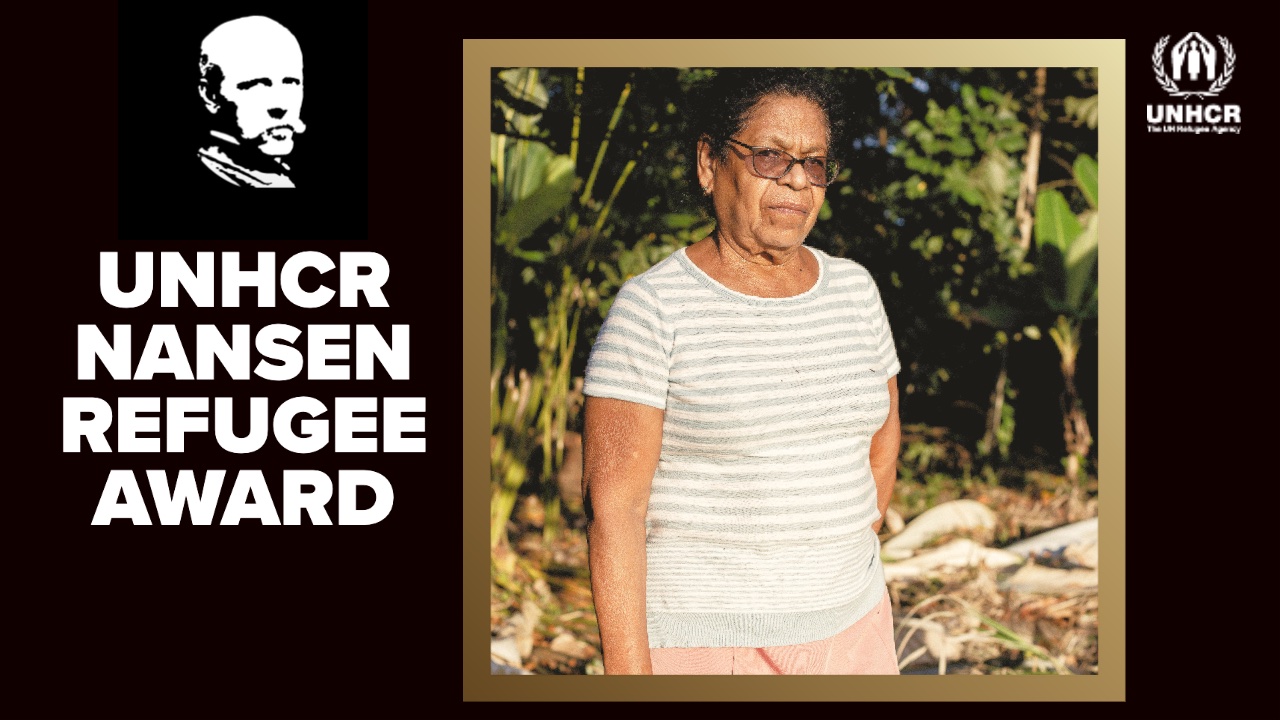Unaccompanied children in Calais cultivate a world away from home

Unaccompanied children in Calais cultivate a world away from home
On a cloudy day in the northern French town of Saint-Omer, Ibrahim, from Darfur in Sudan, is tending to a crop of vegetables with eight other young teenagers.
Ranging from 14 to 17 years in age, they are among the lucky few who have been given a place at Saint-Omer’s Maison du Jeune Réfugié ('house for young refugees'), run by the NGO France Terre d’Asile.
Forty-five children live at the centre, one of the few places that provide accommodation and protection for unaccompanied children who had been living in the makeshift camp known as 'the jungle' near Calais, 45 kilometres away. Here, they find shelter and protection, and can enjoy being children again – unlike in the jungle, where children sleep outside in makeshift shelters and are at risk of violence and abuse. Many have already faced danger while transiting along insecure routes through several countries in Europe.
Gardening is one of the leisure activities organized by the centre and is popular with residents. The children plant, tend and harvest lettuces, courgettes, thyme, tomatoes, basil and rhubarb.
Germaine Tetou, a social worker in Saint-Omer, is teaching them the French names for the vegetables and gardening tools. They repeat them, joking and laughing at one another’s pronunciation.
“France has an obligation to protect unaccompanied children living in the so-called jungle in Calais."
Tetou, who herself came to France as a refugee from Benin, says the children learned quickly. “Every day I am grateful to have this job,” she says. “I understand what they have to go through."
Gardening reminds Ibrahim*, who is 14, of his grandmother’s farm in Darfur. “I like everything here in Saint-Omer, but especially gardening," he says.
He has been in France for 42 days, including the 15 he spent in 'the jungle', where he slept in a makeshift shelter with other teenagers who had fled Darfur, like him, without their parents.
“France has an obligation to protect unaccompanied children living in the so-called jungle in Calais,” says Ralf Gruenert, the representative in France for UNHCR, the UN Refugee Agency.
“And that means first and foremost to find appropriate housing solutions and provide them with legal, social and health care, but also to establish a workable and speedy system for family reunification for unaccompanied children who have families in other European countries, including the United Kingdom, where such a move is in their best interests."
Activities at the centre include French classes, maths, music, arts, sports, cinema and gardening. There is also a library.
Manal*, 16, from Sudan, looks at photos of castles in the south of France after lunch. “It’s beautiful, where is it?" he asks. He wants to find the location on a map to see if it is possible to visit them.
In the afternoon, some of the residents will head to the cinema, where 'Ghostbusters' and 'Star Trek Beyond' are their top choices. Afterwards they plan to play football in the park.
They feel safe at the centre, where they are able to dream as children do once more.
Jamal*, 17, from Ghazni in Afghanistan, also lives at the Saint-Omer centre. He arrived in Calais alone after he fled home.
He says he feels comfortable in Saint-Omer and dreams of becoming an electronic engineer. “There is no fighting here like in the jungle. I like everything here but my favourite activity is learning French.”
"I like everything here but my favourite activity is learning French.”
Accommodation centres and places for children are limited. Most of the unaccompanied children living in Calais do not have the same opportunities as Jamal and Ibrahim.
“Every day we receive requests to receive more children, but we are obliged to refuse as the centre is permanently full,” says the director, Jean-Francois Roger. “More places have to be created. Children need to be in a safe environment.”
According to NGOs, about 850 unaccompanied children live in the Calais 'jungle.'
As an emergency measure, 215 minors are accommodated in a temporary reception camp (Le Centre d'Accueil Provisoire, known by the French acronym CAP) and the Jules Ferry centre for women and children, which are run by the organization La Vie Active. Both are full and cannot accommodate more. The other children live in tents and makeshift shelters in the 'jungle.'
So far this year, of the 300,000 refugees and migrants who have reached Europe, 28 per cent are children and many are travelling alone. In Italy, 15 per cent of the arrivals since the beginning of the year are unaccompanied children.
In 2015, children comprised more than half the global refugee population of 21.3 million, with the number of unaccompanied and separated children on the move also growing dramatically.
Nearly 100,000 asylum applications were made by unaccompanied and separated children in 78 countries in 2015 alone. This was the highest number on record since UNHCR started collecting such data in 2006.
Tensions in Calais have risen over the past few weeks, with French demonstrators blocking access to the Channel Tunnel and the Calais ferry to support calls for the closure of the 'jungle.'
No matter what, as winter approaches, suitable accommodation for unaccompanied children like Jamal, Ibrahim and Manal is urgently needed.
*Names have been changed for protection














